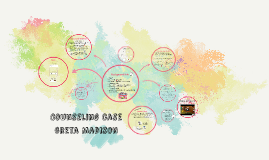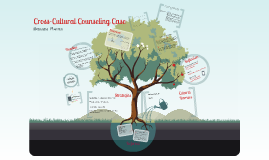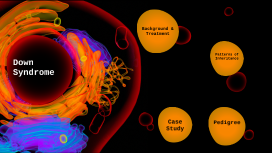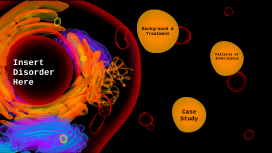Counseling Case Study
Transcript: Psychosocial History Exploring the client's psychosocial history, including past experiences, relationships, and environmental factors, helps in understanding the context of their current mental health status. Family History Symptoms and Behaviors Assessing the client's family history enables the counselor to identify potential genetic, environmental, and relational factors that may contribute to the client's presenting issues. Assessing the client's symptoms and behaviors provides valuable insights into their emotional and psychological well-being, guiding the formulation of an effective treatment plan. Presenting Issues Combined Image Search: assessment client background presenting issues symptoms psychosocial history family history Understanding the Client: Assessment Identifying and understanding the specific problems and concerns that led the client to seek counseling is crucial for establishing the focus of the therapeutic work. Images related to the assessment process in counseling, including client background, presenting issues, symptoms, psychosocial history, and family history, for visual representation in the presentation. The initial assessment is crucial to understand the client's background, presenting issues, symptoms, and psychosocial and family history. Client Background Gathering information about the client's demographics, life events, and cultural background is essential to provide effective counseling tailored to their individual needs. Key Components of Mental Health Assessment Understanding Mental Health Assessment Mental health assessment involves gathering information on the client's current mental state, history, and risk factors to guide treatment decisions effectively. Psychosocial Assessment in Diagnosis Mental health assessment is a crucial process in evaluating an individual's emotional and psychological well-being. The psychosocial assessment in mental health diagnosis examines the client's social, cultural, and environmental factors that may influence their mental health condition. Risk Assessment and Safety Considerations Evaluating the client's risk of harm to themselves or others is a critical aspect of mental health assessment to ensure safety and provide appropriate interventions. Counseling Case Study Progress Monitoring Assessment, Diagnosis, and Treatment Plan Regular assessment and progress monitoring are crucial in therapy to track the client's development, evaluate the effectiveness of interventions, and adjust the treatment plan accordingly. Objective measures, feedback from the client, and therapist observations contribute to informed decision-making and continuous improvement in therapy. Treatment Modalities Goals of Therapy Duration and Frequency of Sessions Various treatment modalities, including individual therapy, group therapy, and family therapy, are utilized based on the client's unique needs and preferences. The selection of modalities is informed by the presenting issues, diagnosis, and therapeutic goals to ensure comprehensive and effective treatment. The primary goal of therapy is to address the client's presenting issues, enhance coping mechanisms, and promote emotional well-being. Specific, measurable, achievable, relevant, and time-bound (SMART) goals are set to guide the therapy process effectively. The duration and frequency of therapy sessions are determined based on the client's needs, treatment goals, and progress. While some clients may benefit from weekly sessions, others may require more intensive or less frequent therapy. Flexibility in scheduling and session duration promotes client engagement and enhances therapeutic outcomes. Interventions Developing a Comprehensive Treatment Plan Therapeutic interventions encompass a range of techniques tailored to the client's needs, such as cognitive restructuring, relaxation exercises, and communication skills training. Each intervention aims to address specific symptoms and behaviors, fostering positive change and growth in the client. Effective treatment plans involve setting clear goals, implementing specific interventions, and utilizing appropriate modalities for progress monitoring. The success of therapy hinges on the strategic planning and execution of the treatment plan. Cognitive Behavioral Therapy Cognitive Behavioral Therapy (CBT) focuses on changing negative thought patterns and behaviors to improve mental health. It has shown efficacy in treating anxiety disorders, depression, and PTSD. Exploring Therapeutic Techniques Therapeutic techniques play a crucial role in the counseling process, offering diverse approaches to address mental health concerns and promote well-being. Family Systems Approach Mindfulness Practices The Family Systems Approach views individuals within the context of their family dynamics. By addressing relational patterns and communication styles, this approach aims to improve family functioning and interpersonal relationships. Mindfulness practices involve

















